Lifespan Engine

How long do diesel hybrid engines last ?
This article discusses the factors that affect the lifespan of diesel hybrid engines and provides an estimate of their expected lifespan. It also offers tips for maximizing the lifespan of these engines through proper maintenance, responsible driving habits, high-quality fuel, and protection against extreme temperatures.
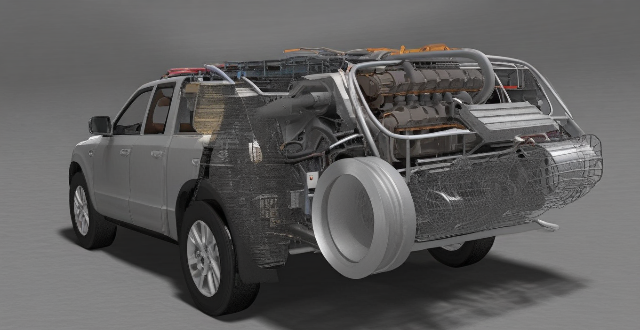
What are the main components of a fuel vehicle's engine ?
The main components of a fuel vehicle's engine include the cylinder block, pistons, connecting rods, crankshaft, camshaft, valves, head gasket, cylinder head, timing belt or chain, oil pump, spark plugs, intake and exhaust manifolds, cooling system, and lubrication system. These components work together to ensure efficient combustion, energy conversion, and overall engine operation.

What are the benefits of a gasoline hybrid engine ?
The article discusses the advantages of a gasoline hybrid engine, which is a combination of a traditional internal combustion engine and an electric motor. The benefits include improved fuel efficiency through reduced fuel consumption, regenerative braking, and start-stop technology; lower CO2 emissions and decreased pollutants resulting in cleaner air quality; and enhanced performance with instant torque, smooth driving experience, and extended brake life due to regenerative braking. Overall, gasoline hybrid engines provide a balance between power and efficiency, making them an attractive option for eco-conscious drivers.
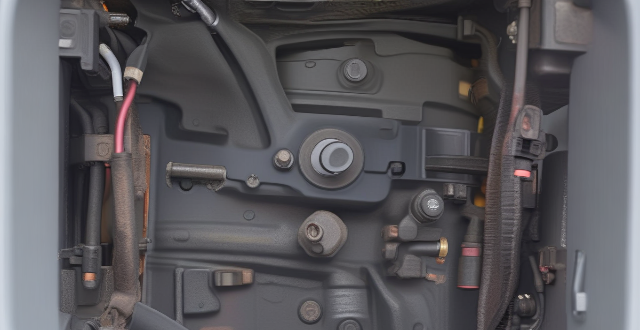
Can an electronic speed controller be used in a car engine ?
The question of whether an electronic speed controller (ESC) can be used in a car engine depends on the type of engine. In traditional internal combustion engines (ICE), which use gasoline or diesel as fuel, an ESC cannot be used because these engines rely on mechanical systems for speed control. However, in electric cars, which use electric motors as their primary source of propulsion, an ESC is essential for controlling the speed of the motor and protecting it from damage. Therefore, while an ESC cannot be used in ICE vehicles, it plays a crucial role in electric vehicles.

What is the lifespan of a lithium battery ?
The lifespan of a lithium battery is affected by various factors such as the type of battery, usage patterns, and environmental conditions. In general, most lithium batteries have a lifespan of 2-3 years or 300-500 charge cycles, whichever comes first. However, this can vary significantly based on the specific application and usage patterns. Different types of lithium batteries have different lifespans. For example, Lithium-ion batteries typically have a longer lifespan than Lithium-polymer batteries. Additionally, some newer types of lithium batteries, such as solid-state batteries, may have even longer lifespans than traditional lithium-ion batteries. How you use your lithium battery can also affect its lifespan. For example, if you frequently charge your battery to 100% and then discharge it completely, this can shorten its lifespan compared to if you only charged it to 80% and discharged it to 20%. Similarly, if you frequently expose your battery to high temperatures or cold temperatures, this can also shorten its lifespan. Finally, the environmental conditions in which your lithium battery is stored and used can also affect its lifespan. For example, if you store your battery in a hot or humid environment, this can shorten its lifespan compared to if you store it in a cool, dry environment. Similarly, if you frequently expose your battery to extreme temperatures or humidity levels while using it, this can also shorten its lifespan. To maximize the lifespan of your lithium battery, there are several things you can do: * Avoid exposing your battery to extreme temperatures or humidity levels. * Try to keep your battery's charge level between 20% and 80% as much as possible. * Use a high-quality charger that is designed specifically for your type of lithium battery. * If possible, try to use your device's built-in power management features to help regulate charging and discharging patterns.
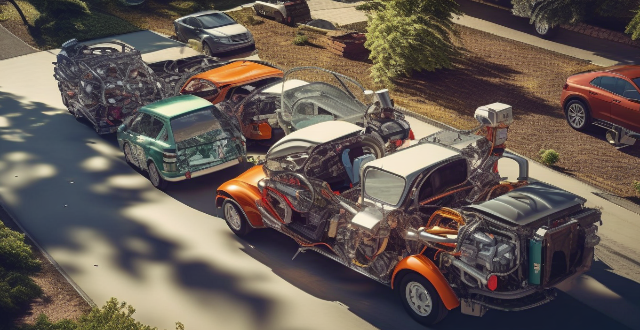
How long do hybrid cars typically last ?
Hybrid cars, which combine a conventional internal combustion engine with an electric motor, are known for their fuel efficiency and environmental benefits. The text discusses the lifespan of hybrid cars, battery life, maintenance, driving habits, usage, factors affecting hybrid car lifespan, tips for maximizing your hybrid car's lifespan, and concludes that many hybrid vehicles can last between 100,000 to 200,000 miles or more when properly maintained.

What factors affect the performance and lifespan of a power battery ?
The performance and lifespan of a power battery are influenced by various factors, including charging habits, discharge rates, temperature conditions, mechanical stress, age, quality of the Battery Management System (BMS), and chemical composition. Overcharging or undercharging can lead to reduced lifespan due to heat buildup or memory effect, respectively. High discharge rates and deep depths of discharge can stress the battery and shorten its longevity. Temperature extremes and fluctuations affect efficiency and stability, while mechanical impacts and vibrations can cause physical damage. Aging is an inevitable factor, but a well-designed BMS can mitigate many issues related to charge and temperature control. Different chemical compositions also play a role in stability and lifespan characteristics. Proper care and management are essential for optimizing battery performance and extending its lifespan.

How does the research on graphene affect battery performance and lifespan ?
Graphene research has a significant impact on battery performance and lifespan by improving electrical conductivity, mechanical strength, and thermal conductivity. Increased charge carrier mobility and enhanced electrode performance lead to better power output and faster charging times. Improved cyclability and reduced shrinkage/expansion contribute to longer battery lifespan. Effective heat dissipation and enhanced safety are also benefits of graphene's high thermal conductivity. Overall, graphene is a promising material for advancing battery technology.

How can I maximize the lifespan of my electric vehicle's power battery ?
Maximizing the Lifespan of Your Electric Vehicle's Power Battery: Electric vehicles (EVs) are becoming increasingly popular due to their eco-friendliness and cost-effectiveness in the long run. However, one of the most crucial components of an EV is its power battery, which requires proper maintenance to ensure a longer lifespan. Here are some tips on how you can maximize the lifespan of your electric vehicle's power battery: 1. Avoid extreme temperatures: The performance and lifespan of your EV's power battery can be significantly affected by extreme temperatures. Both high and low temperatures can cause damage to the battery cells, leading to reduced capacity and shorter lifespan. Therefore, it is essential to store and operate your EV within moderate temperature ranges whenever possible. 2. Maintain proper charging habits: Proper charging habits play a crucial role in maximizing the lifespan of your EV's power battery. It is recommended to maintain a moderate state of charge (SOC) and avoid frequent deep discharges and full charges. 3. Regular maintenance: Regular maintenance is essential for ensuring the longevity of your EV's power battery. This includes monitoring the battery's health, checking for any signs of damage or leakage, and addressing issues promptly. 4. Drive efficiently: Driving efficiently can also help maximize the lifespan of your EV's power battery by reducing strain on the battery and improving overall energy efficiency.
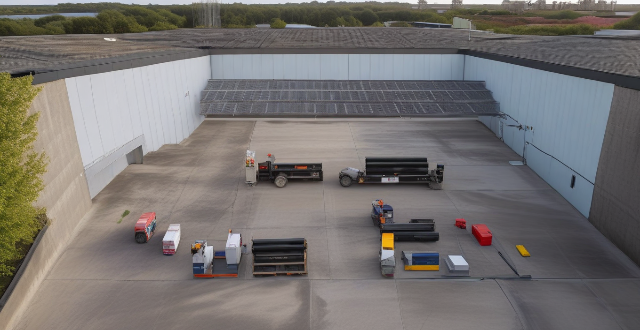
How can you maintain a lead-acid battery to extend its lifespan ?
Lead-acid batteries are commonly used in vehicles, UPS, and solar storage systems. To ensure their longevity, it's essential to maintain them properly. Here's how you can extend the lifespan of your lead-acid battery: prevent overcharging, avoid deep discharges, maintain proper fluid levels, keep the battery clean, and store properly when not in use. By following these maintenance tips, you can significantly extend the lifespan of your lead-acid battery and ensure reliable performance for years to come.
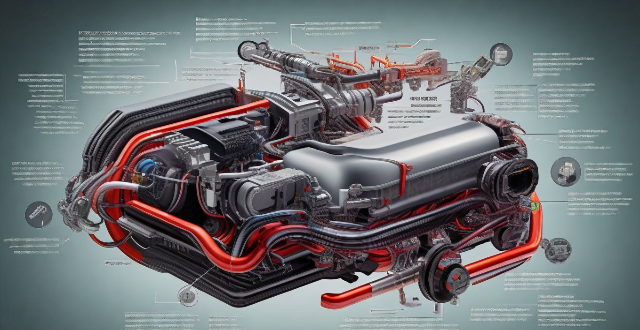
How do I install and maintain a combination motor drive system ?
A combination motor drive system, also known as an integrated drive system or hybrid drivetrain, is a complex assembly of components designed to deliver power from the engine to the wheels of a vehicle. It typically includes an internal combustion engine, one or more electric motors, and a transmission that may incorporate both mechanical and electronic control systems. This guide will walk you through the installation and maintenance process for such a system.

How efficient is a Series Hybrid Electric Vehicle ?
Series hybrid electric vehicles (SHEVs) combine internal combustion engines and electric motors to power wheels, offering efficiency benefits through regenerative braking, engine optimization, and electric drive. However, added weight, system complexity, and battery depletion can be drawbacks. The efficiency of SHEVs hinges on design and driving habits.
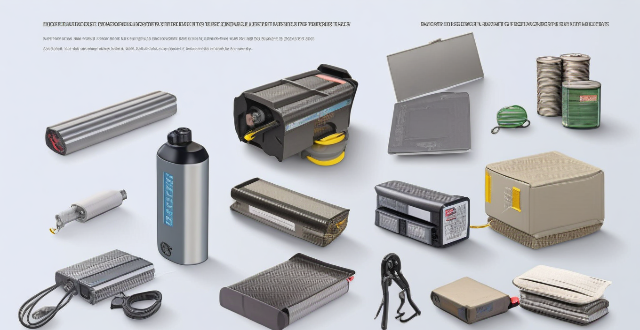
How long does a lead-acid battery last ?
Lead-acid batteries are commonly used in various applications, including vehicles, uninterruptible power supplies (UPS), and renewable energy storage systems. The lifespan of a lead-acid battery depends on several factors, such as its type, usage, and maintenance. In this article, we will discuss the typical lifespan of lead-acid batteries and provide tips for extending their service life.
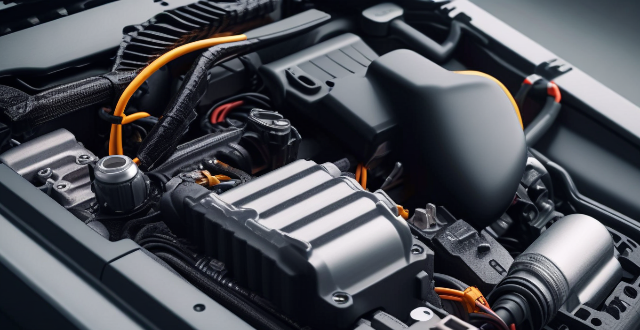
What are the key components of a CHEV's drive system ?
The key components of a CHEV's drive system include the engine, electric motor, transmission, battery pack, and energy management system. The engine generates the majority of the power needed to propel the vehicle, while the electric motor provides additional power during acceleration or hill climbing. The transmission transfers power from the engine and electric motor to the wheels, and may be a conventional automatic or manual transmission or a specialized hybrid transmission. The battery pack stores electrical energy generated by the electric motor during regenerative braking and provides power to the electric motor when needed. The energy management system controls the flow of energy between the engine, electric motor, and battery pack, determining when to use each source of power based on driving conditions, state of charge of the battery, and driver demand. These components work together to provide a seamless driving experience while maximizing fuel efficiency and reducing emissions.

How can I maximize the lifespan of my lithium battery ?
Lithium batteries are widely used in various devices, from smartphones and laptops to electric vehicles. To ensure that your lithium battery lasts as long as possible, it's essential to follow some best practices for charging, storing, and using the battery. Here are some tips to help you maximize the lifespan of your lithium battery: 1. Avoid Overcharging 2. Maintain Proper Charging Levels 3. Store at Optimal Temperatures 4. Manage Battery Use 5. Software Updates 6. Physical Care

How long does a typical power battery last in an electric vehicle ?
Electric vehicles (EVs) have become increasingly popular due to their environmental benefits and lower operating costs. One of the most common concerns for potential EV owners is the lifespan of the vehicle's power battery. In this article, we will explore the typical lifespan of a power battery in an electric vehicle and factors that can affect it. The lifespan of a power battery in an electric vehicle depends on several factors, including the type of battery, driving habits, and maintenance practices. However, a general rule of thumb is that a typical power battery lasts between 8-15 years or 100,000-200,000 miles. Several factors can impact the lifespan of a power battery in an electric vehicle. These include: - Type of Battery: The two most common types of batteries used in EVs are lithium-ion and nickel-metal hydride. Lithium-ion batteries generally have a longer lifespan than nickel-metal hydride batteries. - Driving Habits: Frequent rapid acceleration and braking can shorten the lifespan of a power battery. Additionally, driving at high speeds and in hot temperatures can also negatively impact battery life. - Maintenance Practices: Proper maintenance practices, such as regularly checking and maintaining the cooling system, can help extend the lifespan of a power battery. Neglecting maintenance can lead to premature battery failure. - Charging Habits: Charging the battery to 100% every time can shorten its lifespan. It is recommended to charge the battery to around 80% to prolong its lifespan. As a power battery ages, it may start showing signs of failure. Some common signs include: - Reduced Range: If you notice a significant decrease in the distance your EV can travel on a single charge, it could be a sign that your power battery is failing. - Slow Charging: If your EV takes longer to charge than usual, it could be a sign that your power battery is losing capacity. - Decreased Performance: If you notice a decline in your EV's overall performance, such as slower acceleration or reduced top speed, it could be due to a failing power battery. - Bulging or Swelling: If you notice any physical changes to your power battery, such as bulging or swelling, it is a clear sign that it needs to be replaced. In conclusion, the typical lifespan of a power battery in an electric vehicle is between 8-15 years or 100,000-200,000 miles. However, several factors can impact the lifespan of a power battery, including the type of battery, driving habits, maintenance practices, and charging habits. By being mindful of these factors and properly maintaining your EV's power battery, you can help extend its lifespan and enjoy many years of reliable performance.
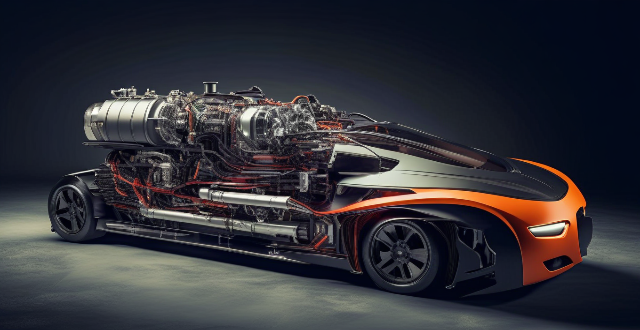
Can I still use gasoline in a gasoline hybrid car ?
Gasoline hybrid cars combine a traditional gasoline engine with an electric motor for improved fuel efficiency and reduced emissions. While they still require gasoline to operate the internal combustion engine, they offer significant savings in fuel costs over time. To maximize fuel efficiency in a gasoline hybrid car, drivers should practice eco-driving techniques, perform regular maintenance, and utilize regenerative braking settings. Gasoline hybrid cars represent a step towards reducing our reliance on fossil fuels and transitioning to cleaner energy sources.

What factors affect the performance of a lithium battery ?
The performance of a lithium battery can be affected by temperature, charging rate, discharging rate, depth of discharge, age, and manufacturing quality. High temperatures and fast charging can damage the battery and reduce its lifespan, while low temperatures and slow charging can prolong the battery's lifespan but may not provide enough power for high-demand devices. High discharging rates can cause the battery to heat up and decrease in performance, while low discharging rates can prolong the battery's lifespan but may not provide enough power for high-demand devices. High DoD can lead to increased stress on the battery and a shorter lifespan, while low DoD can help prolong the battery's lifespan but may not be practical for devices that require a lot of power. Older batteries will have decreased capacity and performance, while newer batteries will have better performance and capacity. High-quality manufacturing processes can result in better performing batteries with longer lifespans, while low-quality manufacturing processes can result in poor performing batteries with shorter lifespans.

How long do solar panels typically last ?
Solar panels are a sustainable and cost-effective way to generate electricity. However, the lifespan of solar panels is an important factor to consider when making an investment in renewable energy. In this article, we will explore how long solar panels typically last and what factors can affect their lifespan. Solar panels are designed to last for several decades, with most manufacturers offering warranties of 25 years or more. However, the actual lifespan of a solar panel can vary depending on several factors, including the quality of materials used, the installation process, and environmental factors. The quality of the materials used in the manufacturing process can significantly impact the lifespan of a solar panel. Proper installation ensures that the panel is securely mounted and protected from potential damage caused by weather conditions or other external factors. Environmental factors such as temperature, humidity, and exposure to sunlight can also impact the lifespan of a solar panel. To ensure that your solar panels last as long as possible, it is essential to perform regular maintenance checks. This includes keeping the panels clean, checking for damage, and monitoring performance over time. By following proper maintenance practices and monitoring your solar panel's performance over time, you can ensure that your investment in renewable energy pays off in the long run.
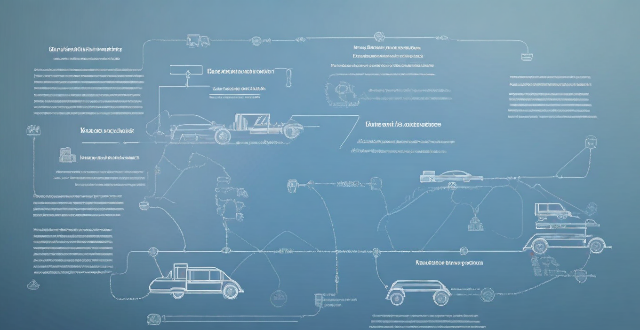
What are the benefits of owning a hybrid car ?
This text discusses the benefits of hybrid cars, which include environmental advantages such as reduced emissions and conservation of fossil fuels; financial savings through better MPG and tax incentives; an improved driving experience with a quieter ride and regenerative braking system; long-term durability due to less wear and tear on the engine and reliable battery technology; and social responsibility by demonstrating commitment to the environment and supporting clean technology.

Are there any alternatives to lead-acid batteries for energy storage ?
Lead-acid batteries have been a popular choice for energy storage due to their cost-effectiveness and reliability. However, there are several alternatives available that offer different benefits depending on the specific application. Some of the most common alternatives include lithium-ion batteries, nickel-cadmium batteries, sodium-sulfur batteries, and flow batteries. Each of these options has its advantages and disadvantages, such as higher energy density, longer lifespan, faster charging capabilities, and potential safety risks. By considering factors such as energy density, lifespan, maintenance requirements, and environmental impact, you can choose the best option for your energy storage needs.

What factors affect the lifespan of a DC brushed motor, and how can they be mitigated ?
The lifespan of a DC brushed motor is influenced by mechanical wear, electrical stress, thermal effects, and environmental factors. To extend its operational life, strategies like regular maintenance, proper sizing, protection circuitry, adequate cooling, and maintaining cleanliness are recommended.